Pregnancy Calendar: First Trimester
Pregnancy is measured using a 40-week timeline. The beginning of pregnancy is calculated from the beginning of your last menstrual period, meaning pregnancy actually starts two weeks before your baby is conceived. Your due date is an estimate, calculated by counting 280 days from the first day of your last period.
The first trimester lasts about 13 weeks, although you are not even pregnant the first two weeks of that time period. Fertilization and implantation occur around the second week of the 40-week pregnancy timeline. The following 11 weeks are when your baby’s development is most rapid and healthy habits are most crucial.
During the first trimester, all major systems and organs begin to form, including the neural tube (which will become the brain and spinal cord), the digestive and urinary systems, and the heart and circulatory system. Limbs have developed, and fingers and toes are webbed but visible. Even fingernails and toenails have begun to form.
Bones have begun to develop and the jaw is developing quickly. Significant progress has been made regarding your baby’s head and face: the eyes, nose, mouth and ears are distinct, and tooth buds have started to form.
Additionally, the external genital organs are developed and could be distinguishable outside the womb. Your baby is in constant motion, even though he or she will not be big enough for you to feel it for several more weeks.
Because all major organs and systems are being formed this trimester, exposure to damaging substances, including drugs, tobacco, alcohol, chemical and toxic substances, should be completely avoided. By the end of the trimester, these entities are fully formed, but your baby is still too small to survive on its own outside the womb. He or she is still counting on you for support and growth into a fully formed baby.
And while you are likely not showing much on the outside, your body is experiencing many changes, as well.
Your breasts are likely enlarging and becoming tender. This is due to expanding mammary glands in preparation for breastfeeding. Consider buying one or two supportive bras for this time period. Your areolas and nipples will enlarge and darken, and small, white bumps may appear. Additionally, veins in your breasts will darken due to increased blood volume.
Your uterus continues to grow and may begin putting pressure on your bladder, causing frequent urination. The uterus may also press on the digestive tract, causing constipation. An increase in progesterone causes the muscular contractions in the intestines to slow and, in turn, causes heartburn, indigestion, constipation or gas.
Blood volume increases drastically, about 50 percent more than your pre-pregnancy volume. This can cause an increase heart rate during pregnancy.
Moods may change quickly due to extra hormones in the body. These hormones may also cause morning sickness, which includes nausea and sometimes vomiting. Your body will become fatigued more easily, as you continue to build a new life in your womb.
And while all these changes are happening, you will continue to gain weight to support your growing baby. While some of these symptoms are not ideal, they will most certainly be worth it when you meet your little one for the first time!
The first trimester is the time to ensure you are comfortable with the medical care team and all the tests, exams, and screenings that will be performed. Ask plenty of questions to make sure you are aligned on proper care for your baby, and speak up when you have concerns. During the first trimester, you can also expect several medical tests and screenings, including:
- Pelvic examination(s) to document the size and position of the uterus, check pelvic size and structure and perform a Pap smear to check for abnormal cells.
- Urine tests to screen for bacteria, sugar and protein
- Blood tests to determine blood type, Rh incompatibilities, and the presence of certain diseases and conditions
- Genetic tests to detect inherited diseases
- Screening tests to determine the odds of Down syndrome
The first trimester is also an important time to make sure you are eating a healthy diet and taking prenatal vitamins. Your body needs a healthy combination of fruits, vegetables, lean proteins, whole grains, dairy and healthy fats. A balanced diet and vitamins recommended by your doctor will help to ensure you are getting the protein, iron, calcium and folic acid imperative for a healthy pregnancy.
Pregnant women, unless otherwise instructed by their doctor, should not feel confined by their pregnancy; there are plenty of activities available including regular exercise. Ideally, shoot for 30 minutes five to seven days a week. It will help you reduce troublesome symptoms like backaches, constipation, bloating and swelling. It will provide more energy and improve your mood, as well as your posture, muscle tone, strength and endurance. It can even help you have a smoother labor and easier recovery.
Don’t forget, you and your partner will need to consider your budget for pregnancy and delivery, too. On average, medical costs for pregnant women come in at about $8,000. Talk to your medical team, your insurance company and your partner to ensure you know exactly what to expect.
Finally, try to enjoy your pregnancy! Pamper yourself and allow others to help with responsibilities around the house. Never turn down a nap! Laugh at the fun stuff and cherish those once-in-a-lifetime moments with your partner.

